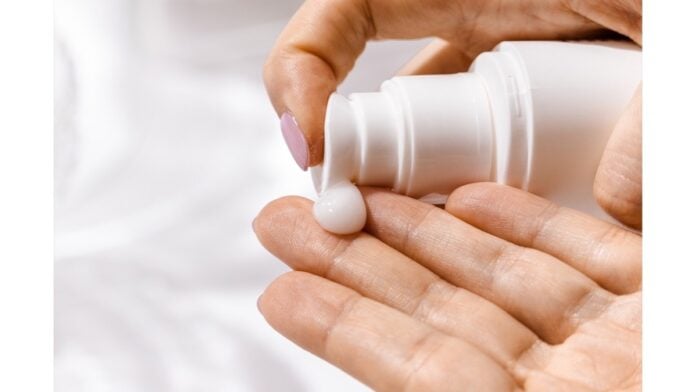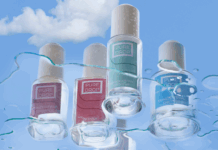Febea (Fédération des entreprises de la beauté) has unveiled the results of its barometer conducted in partnership with OpinionWay on "French sun protection habits".
The French protect themselves, but not enough
While 9 out of 10 French people think it's essential to protect themselves from UV radiation with suitable products, the extent to which people actually do so varies according to the location of exposure, as well as their sex and age.
At the seaside or poolside, more than 8 out of 10 French people (83 %) use sunscreen at least once a day for exposure lasting several hours, but only 43 % repeat this gesture at least every two hours. And there are still 16 % (3 points less than in 2021) who say they never protect themselves, a rate that rises to 21 % among men.
In a garden or on a terrace, only 69% apply sun protection at least once a day for long exposure. Even so, 30% of French people (including 36 % of men) never protect themselves (10 points more than in 2021).
The vast majority of parents (93 %) protect their children at least once a day when exposed to the sun, and almost 60 % reapply sunscreen at least every two hours. Only 7 % of children are never protected.
Nearly two-fifths (39 %) of French people think they can do without sunscreen because "they don't really need it", a rate that rises to 46 % among men and young people aged 25 to 34. "An alarming lack of awareness of the risks," notes Febea.
Many obstacles
The reasons that motivate the French to protect themselves are, first and foremost, protection against sunburn for 79 % of them, followed by protection against skin pathologies (cancers, allergies, ...) for 76 %, then protection against skin aging (53 %, + 4 points compared to 2021 results).
Among the top three disincentives cited were fears of the health impact of certain ingredients in the creams (59 %), followed closely by the price of sunscreens (57 %), and the ecological impact they could have on the oceans and the environment (54 %).
The 25-34 age group is particularly concerned about the possible health risks of sunscreens (69 %, 10 points above average). They are also twice as likely as the average to think that sunscreens prevent them from tanning (45 % vs. 22 %).
"These figures reveal a major paradox: on the one hand, a very high collective awareness of the health risks of UV exposure, and on the other, a lack of rigor in following the health authorities' recommendations for protection, says Emmanuel Guichard, Managing Director of Febea. This barometer also shows that preconceived ideas about the health and environmental impact of suncare products persist. Suncare products are subject to extremely strict regulations, which guarantee both their efficacy and their safety for consumer health. What's more, brands are constantly innovating to improve formulations, enhance biodegradability and measure the impact on marine environments as accurately as possible.
"We must continue to remind people that the risks associated with unprotected exposure to the sun are fatal. The real danger is not protecting yourself!" he warns.
Using sunscreens properly
Febea reminds us that sunscreen should not be used if it has been open for a year, and that sun protection should be applied every two hours, or even more often if you're swimming, sweating or if your skin has been rubbed by a cloth (clothing, towel). A high sun protection factor does not prevent you from tanning.
What's more, sun protection products are non-toxic to your health. "All cosmetics products and ingredients on the market are safe for your health. Among cosmetic ingredients, sunscreens are subject to a specific additional framework: given their major role in health, the Scientific Committee on Consumer Safety (SCCS), an independent body reporting to the European Commission, regularly carries out in-depth checks on their efficacy and safety".emphasizes the federation of beauty companies.
Quid the environmental impact of sunscreens? According to Febea, the cosmetics industry is taking action to design sunscreen formulas that provide optimum protection, while reducing their impact on the environment. For example, by using fewer filters, introducing ingredients of plant origin, or biodegradable, not forgetting water-resistant formulas.
The federation of beauty companies also notes that the weakening of coral reefs is largely due to the effects of global warming, such as rising temperatures and acidifying waters.
Photo: AdoreBeautyNZ / Pixabay








